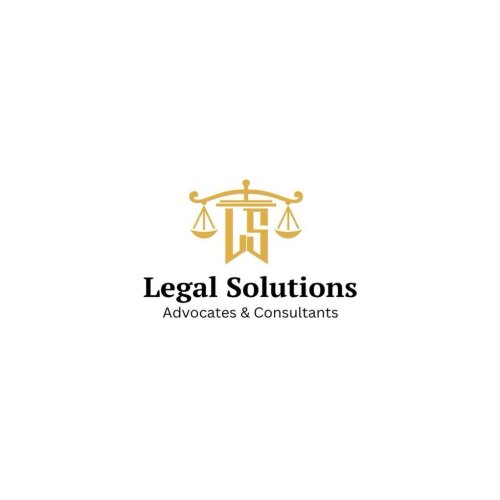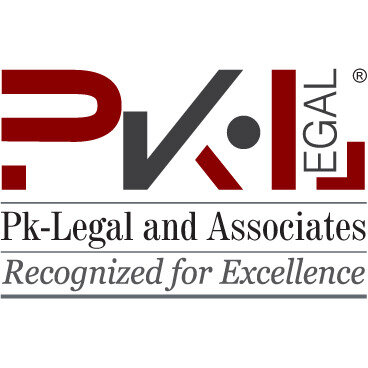Best Public-Private Partnerships (PPP) Lawyers in Rawalpindi
Share your needs with us, get contacted by law firms.
Free. Takes 2 min.
List of the best lawyers in Rawalpindi, Pakistan
About Public-Private Partnerships (PPP) Law in Rawalpindi, Pakistan
Public-Private Partnerships (PPP) are collaborative ventures between government bodies and private sector companies to finance, build, and operate projects that are traditionally provided by the public sector. In Rawalpindi and the wider Punjab province, PPPs have become an essential mechanism for infrastructure development, especially for roads, hospitals, schools, and urban services.
The legal framework for PPPs is designed to attract private sector investment by providing clear guidelines, incentives, and risk-sharing models. In Rawalpindi, PPPs are governed by provincial laws such as the Punjab Public-Private Partnership Act, and supplemented by national policies and guidelines. These laws define the structure, legal procedures, and permissible arrangements for such partnerships.
Why You May Need a Lawyer
Navigating PPP projects involves complex legal requirements and large financial stakes. Common situations where you may need legal help include:
- Assessing eligibility for bidding on government PPP projects
- Drafting and negotiating PPP contracts and agreements
- Ensuring compliance with local regulations and tender procedures
- Clarifying roles, responsibilities, and risk-sharing between parties
- Addressing disputes and disagreements during project implementation
- Evaluating land use issues and acquisition procedures
- Resolving taxation, licensing, and regulatory matters
- Understanding financial closure processes and securing funding
- Protecting your interests in project modifications or early terminations
Local Laws Overview
In Rawalpindi, the main legal instrument for PPPs is the Punjab Public-Private Partnership Act, 2014 with subsequent amendments and the related rules. These laws are meant to ensure transparency, fairness, and accountability throughout the PPP process. Key aspects include:
- Project Selection: PPP projects must align with public sector development plans and receive approval from relevant authorities such as the PPP Cell in Punjab.
- Procurement: The law sets open bidding processes and clear evaluation criteria to select private partners.
- Contractual Framework: PPP agreements stipulate rights, obligations, and risk allocation for both parties and must comply with the prescribed legal requirements.
- Dispute Resolution: The law mandates mechanisms for settling disputes, typically through local courts or arbitration.
- Land Acquisition and Licensing: Specific rules allow for government facilitation with respect to land use, permits, and licenses.
- Monitoring: Oversight bodies ensure project compliance, quality, and performance throughout the project lifecycle.
Understanding these laws is crucial for both public and private parties seeking to engage in PPP projects in Rawalpindi.
Frequently Asked Questions
What types of projects are suitable for PPPs in Rawalpindi?
PPPs are often used for infrastructure projects like highways, public transport, hospitals, schools, water supply, solid waste management, and energy initiatives.
Who can participate in PPP projects?
Private companies, consortia, or joint ventures with relevant technical and financial capabilities can bid for PPP projects through public tenders.
Are there any specific qualifications needed to apply for PPP projects?
Yes, bidders must meet pre-qualification criteria outlined in the tender documents, including financial strength, past experience, and technical expertise.
How are PPP contracts awarded?
Contracts are awarded through a competitive bidding process based on technical merit and financial offers, in accordance with the Punjab PPP Act and associated rules.
How is risk shared between the public and private sectors?
Risk allocation depends on the project agreement but typically includes sharing risks related to construction, finance, operations, and demand between both parties.
What is the role of the PPP Cell Punjab?
The PPP Cell acts as a facilitator and regulator, ensuring compliance with laws, guiding project development, and supporting public sector agencies in structuring PPP projects.
How can legal disputes in PPP projects be resolved?
Disputes are generally resolved through arbitration or litigation, as specified in the contract, and in accordance with Pakistani law.
Is government support available for PPP projects?
Yes, the government may provide viability gap funding, facilitate land acquisition, or offer other incentives to support PPP projects.
Can foreign investors participate in PPP projects in Rawalpindi?
Foreign investors are allowed to participate, provided they comply with relevant investment and regulatory requirements.
What happens if a PPP contract is terminated early?
Early termination is addressed in the contract, with provisions for compensation, transfer of assets, and dispute resolution procedures.
Additional Resources
If you need more information or assistance, consider consulting the following resources:
- PPP Cell, Planning and Development Board, Punjab
- Rawalpindi Development Authority (RDA) for local project approvals
- Pakistan Board of Investment (for foreign investors)
- Punjab Law Department for legal texts and guidance
- Professional bodies such as the Rawalpindi Chamber of Commerce and Industry
- Licensed legal practitioners specializing in corporate and PPP law
Next Steps
If you are considering participating in or developing a PPP project in Rawalpindi, the following steps are recommended:
- Consult with a qualified lawyer experienced in PPP law and local regulations.
- Gather all necessary documentation regarding your business, technical capabilities, and financial standing.
- Review relevant laws and tender documents carefully to ensure compliance.
- Engage with government bodies such as the PPP Cell and the RDA for guidance and official processes.
- Prepare for detailed contract negotiations and due diligence phases.
- If you encounter disputes or regulatory challenges, seek immediate legal advice to protect your interests.
A knowledgeable legal advisor will not only help you comply with regulations but also protect your rights and investments throughout the PPP project lifecycle.
Lawzana helps you find the best lawyers and law firms in Rawalpindi through a curated and pre-screened list of qualified legal professionals. Our platform offers rankings and detailed profiles of attorneys and law firms, allowing you to compare based on practice areas, including Public-Private Partnerships (PPP), experience, and client feedback.
Each profile includes a description of the firm's areas of practice, client reviews, team members and partners, year of establishment, spoken languages, office locations, contact information, social media presence, and any published articles or resources. Most firms on our platform speak English and are experienced in both local and international legal matters.
Get a quote from top-rated law firms in Rawalpindi, Pakistan — quickly, securely, and without unnecessary hassle.
Disclaimer:
The information provided on this page is for general informational purposes only and does not constitute legal advice. While we strive to ensure the accuracy and relevance of the content, legal information may change over time, and interpretations of the law can vary. You should always consult with a qualified legal professional for advice specific to your situation.
We disclaim all liability for actions taken or not taken based on the content of this page. If you believe any information is incorrect or outdated, please contact us, and we will review and update it where appropriate.














